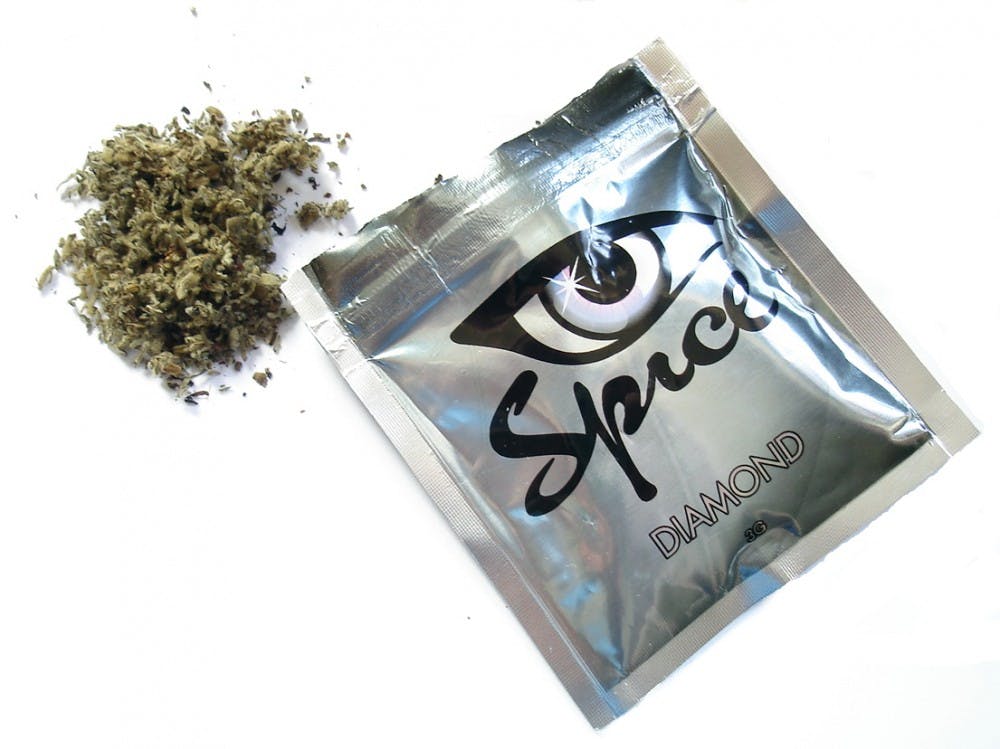The local drug enforcement task force has seen a recent surge in the number of calls related to the use of spice, or synthetic marijuana.
Jefferson Area Drug Enforcement, which includes University, city and officers, have been responding to a number of people experiencing immediate and dangerous health issues after taking the drug, including vomiting, profuse sweating and unconsciousness, said Lieutenant Joseph Hatter of the Charlottesville Police Department.
“Some people are walking down the street naked,” Hatter said. “Some of the people that are unconscious, when they are awoken by the rescue squad, they become combative.”
The National Institute on Drug Abuse describes spice, or synthetic marijuana, as a wide variety of herbal mixtures marketed as a safe alternative to marijuana.
Commonly thought of as a lab-made substitute for marijuana, synthetic marijuana is gaining publicity for its negative side effects.
The drug is not at all safe, and in many cases, is also very illegal, Hatter said.
“A lot of people seem to have a misconception that spice is an alternative to marijuana, or a safe alternative, or that it can’t be tested in a urinalysis screen,” Hatter said. “That’s what draws some people to it, that they can’t be tested for it….that’s false."
Charlottesville police have seen about 15 cases of synthetic marijuana use within the last month, Hatter said.
Data from the Gordie Center for Substance Abuse Prevention’s Spring 2015 Health Survey, taken by 931 undergraduates, indicates the use of spice is not limited to the community outside the University.
The survey shows a small number of students, approximately 3 percent, have experimented with the drug, Gordie Center Director Susan Bruce said.
“When you look at the undergraduate population, that’s about 400 students,” Bruce said.
The Gordie Center and the Charlottesville Police Department strongly encourage students to be critical of any statements saying spice is legal or safe, particularly because there is a potential for added chemicals, Hatter said.
“The problem is, you don’t know what you’re buying,” Hatter said “You don’t know what chemical has been added to it, you don’t know what effects it will have – short term or long term.”







